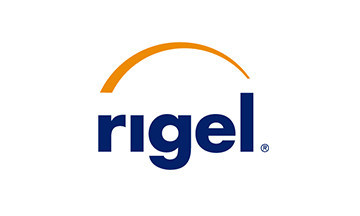Rigel Pharmaceuticals, Inc. (Nasdaq: RIGL) today announced that Grifols S.A., its collaborative partner in Europe , has launched TAVLESSE ® in Germany and the United Kingdom . It was approved by the European Commission in Janu
|
SOUTH SAN FRANCISCO, Calif., July 9, 2020 /PRNewswire/ -- Rigel Pharmaceuticals, Inc.. (Nasdaq: RIGL) today announced that Grifols S.A., its collaborative partner in Europe, has launched TAVLESSE® in Germany and the United Kingdom. It was approved by the European Commission in January 2020 for the treatment of chronic immune thrombocytopenia (ITP) in adult patients who are refractory to other treatments. TAVLESSE, which is marketed in the U.S. under the brand name TAVALISSE®, is an oral spleen tyrosine kinase (SYK) inhibitor that targets the underlying autoimmune cause of ITP by impeding platelet destruction. "The launch of TAVLESSE in Germany and the United Kingdom is an important step in making our product available to ITP patients across Europe," said Raul Rodriguez, Rigel's president and CEO. "Europe represents approximately half of the estimated $900 million ITP market outside of the U.S., and Grifols's experience with treatments for hematological disorders make them the ideal collaborative partner for our product." Spain-based Grifols S.A. (MCE: GRF, MCE: GRF.P, NASDAQ: GRFS) is a global healthcare company and a leading producer of plasma-derived medicines for the treatment of rare and chronic diseases, including intravenous immunoglobulin (IVIG) which is used in the treatment of ITP. About ITP About TAVLESSE TAVLESSE Dosage The recommended starting dose of fostamatinib is 100 mg twice daily. After initiating fostamatinib, the dose can be increased to 150 mg twice daily after 4 weeks based on platelet count and tolerability. A daily dose of 300 mg daily must not be exceeded. Management of some adverse reactions may require dose interruption, reduction, or discontinuation. Discontinuation: Treatment with fostamatinib should be discontinued after 12 weeks of fostamatinib therapy if the platelet count does not increase to a level sufficient to avoid clinically important bleeding. For Monitoring and dose modifications please refer to SmPC. Special populations: No dose adjustment is necessary in patients with renal impairment or the elderly. Fostamatinib should not be used in patients with severe hepatic impairment or children and adolescents less than 18 years of age because of adverse reactions on actively growing bones observed in nonclinical studies. Administration: Fostamatinib is for oral use. The tablets should be taken twice daily, whole with or without food. In the event of gastric upset, tablets may be taken with food. Contra-indications: Hypersensitivity to the active substance or to any of the excipients. Pregnancy (see SmPC) Special warnings and precautions for use (for more information see the SmPC): Information is based on ITP placebo-controlled population unless specified. Excipients: TAVLESSE 150 mg film-coated tablets contains 34 mg sodium per tablet, equivalent to 1.7% of the WHO recommended maximum daily intake of 2 g sodium for an adult. Hypertension The patient's blood pressure should be monitored every two weeks until stable, then monthly, and adjust or initiate antihypertensive therapy to ensure maintenance of blood pressure control during fostamatinib therapy. If increased blood pressure persists despite appropriate therapy, the physician should consider fostamatinib dose interruption, reduction or discontinuation. Liver function test abnormalities and risk of hepatotoxicity Sparse data suggest an increased risk of hyperbilirubinemia in patients with genetic polymorphisms of UGT1A1, e.g. Gilbert, the physician should monitor these patients frequently. For all patients, transaminases recovered generally to baseline levels within 2 to 6 weeks of dose-modification. The physician should monitor liver function tests monthly during treatment. If ALT or AST increase more than 3 x ULN, the physician should manage hepatotoxicity by treatment interruption, reduction or discontinuation. Concomitant total bilirubin increases greater than 2 X ULN should lead to treatment discontinuation. Complete blood counts (CBCs) Diarrhea Neutropenia Infections Bone remodeling (see SmPC for interactions with other medicinal products and other form of interactions) Women of childbearing potential must use effective contraception during treatment and at least one month after the last dose. Pregnancy: Based on findings from animal studies and its mechanism of action, fostamatinib can cause fetal harm when administered to a pregnant woman. Pregnant women should be advised about the potential risk to a fetus. Pregnancies occurring during clinical trials resulted in healthy newborns as well as stillbirths/spontaneous abortions and miscarriages. If a patient becomes pregnant while taking fostamatinib, therapy should be discontinued. Fostamatinib is contraindicated during pregnancy. Breast-feeding: It is unknown whether fostamatinib/metabolites are excreted in human milk. Available pharmacodynamic/toxicological data in animals have shown excretion of fostamatinib metabolites in milk. A risk to the newborns/infants cannot be excluded. Breast-feeding should be discontinued during treatment with fostamatinib and for at least one month after the last dose. Fertility: There are no data on the effect of fostamatinib on human fertility. Based on the finding of reduced pregnancy rates in animal studies, fostamatinib may affect female fertility. Studies in animals have shown no adverse effect on male fertility. Given there is no evidence for mutagenic or clastogenic potential, there is no concern for male-mediated birth defects. Undesirable effects The most common reported adverse reactions associated with fostamatinib were: Upper respiratory tract infection, respiratory tract infection, bronchitis, lower respiratory tract infection, viral upper respiratory tract infection, Neutropenia, febrile neutropenia, Dizziness, Dysgeusia, Hypertension, Diarrhea, nausea, frequent bowel movement, upper abdominal pain, abdominal pain, rash, rash erythematous, rash macular, Chest pain, fatigue, influenza like illness, Alanine aminotransferase increased, aspartate aminotransferase increased, blood pressure (BP) increased, BP diastolic abnormal, BP diastolic increased, BP systolic increased, hepatic enzyme increased, liver function test abnormal, Neutrophil count decreased. For full details please refer to the SmPC. Reporting of suspected adverse reactions About Rigel (www.rigel.com) Rigel's clinical programs include a Phase 3 study of fostamatinib in warm autoimmune hemolytic anemia (AIHA); a completed Phase 1 study of R8351, a proprietary molecule from its interleukin receptor associated kinase (IRAK) inhibitor program; and an ongoing Phase 1 study of R5521, a proprietary molecule from its receptor-interacting protein kinase (RIP) inhibitor program. In addition, Rigel has product candidates in clinical development with partners Aclaris Therapeutics, AstraZeneca, BerGenBio ASA, and Daiichi Sankyo. Please see www.TAVALISSE.com for the full Prescribing Information. 1This product candidate is investigational and has not been established safe or effective by the U.S. Food and Drug Administration (FDA) or any regulatory authority. Forward Looking Statements IR Contact: David Burke
SOURCE Rigel Pharmaceuticals, Inc. |
||
Company Codes: NASDAQ-NMS:RIGL, NASDAQ-NMS:GRFS, SpanishCats:GRF, OTC-PINK:GIKLY, SpanishCats:GRF.P |





